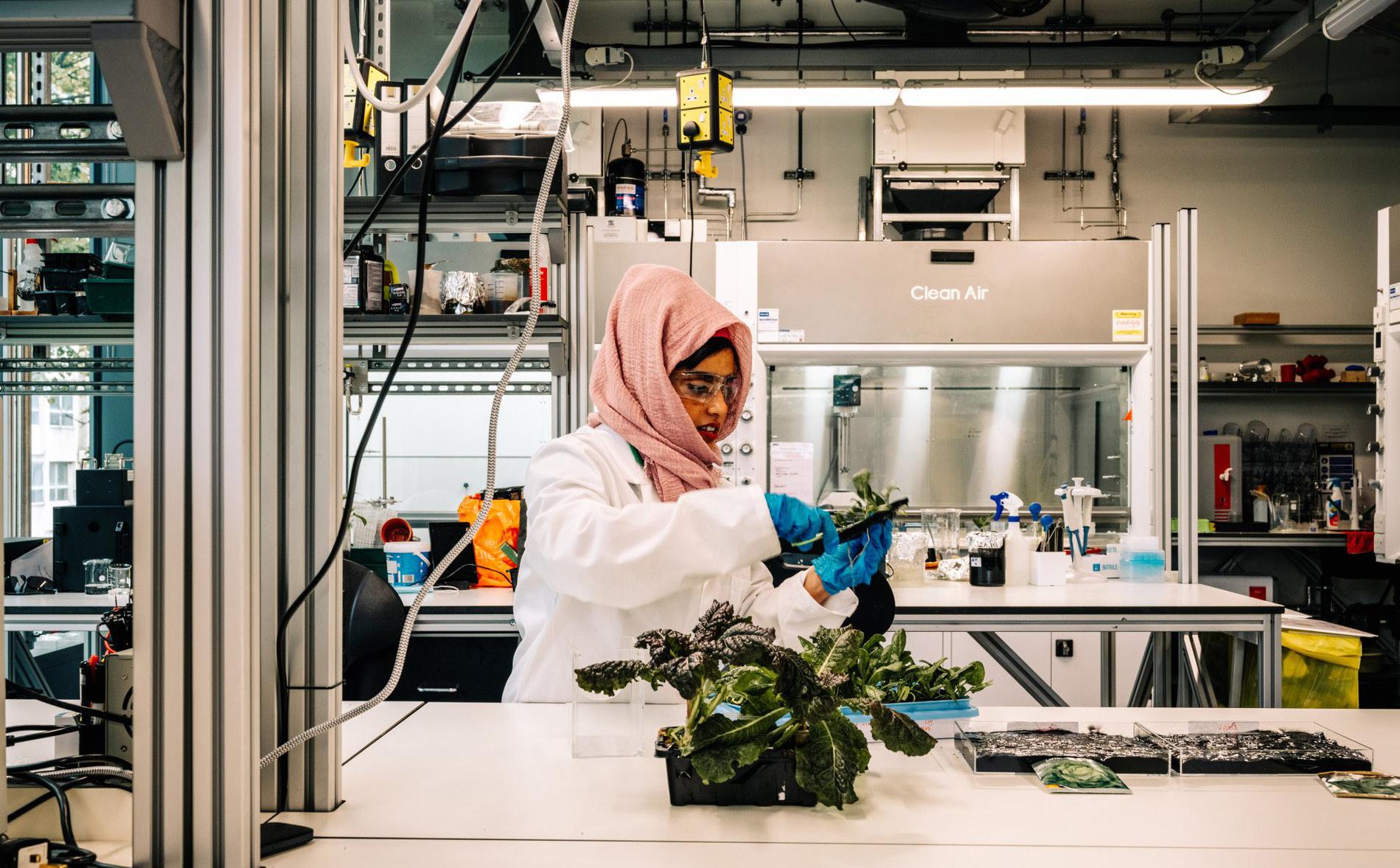Case Study 1 – AEH Innovative Hydrogel Ltd An intelligent soil alternative that can sense and respond to a plant’s nutritional needs is being developed by scientists using graphene, the 2D super material first isolated at The University of Manchester. GelPonic could help address heightened global food security concerns following the coronavirus pandemic, drastically reducing the amount of energy and human interaction required to produce food using ‘vertical farming’ techniques.
By using minute electronic sensors to monitor a plant’s nutritional requirements, then automatically release nutrients to its root system, GelPonic has the potential to substantially reduce production costs and labour requirements.
While vertical farming aims to minimise water use and maximise productivity by growing crops hydroponically in small amounts of nutrient-rich water stacked in a climate-controlled building, high energy and labour costs mean it is not currently considered a sustainable long-term solution.
GelPonic relies on a growth substrate – the surface or material from which an organism feeds – for indoor fruit-and-veg that improves performance in numerous ways. The hydrogel growth medium conserves water and filters out pathogens to protect plants from disease, while a graphene sensor allows remote monitoring, reducing labour costs.
The University of Manchester start-up AEH Innovative Hydrogel Ltd has secured £1 million of Government funding through Innovate UK for the two-year Graphene Engineering Innovation Centre project to develop a unique, virtually maintenance-free ‘vertical farming’ system.
10
Moreover, the production of the growth medium outputs significantly less CO2 compared to traditional solutions and can also be used in areas with drought conditions and infertile soil.
Led by Dr Beenish Siddique, AEH Innovative Hydrogel has been supported by the European Research Development Fund’s Bridging the Gap programme and was a 2019 prize-winner in the prestigious Eli and Britt Harari Graphene Enterprise Award, run by the University. Bridging the Gap was developed to proactively engage with Greater Manchester-based SMEs and new ventures to allow them to overcome challenges, and explore and apply graphene and other advanced materials in a wide range of applications and markets. The extra £1 million in funding announced by the UK Government is part of a broader £24 million spend to assist UK farming through pioneering technology.






